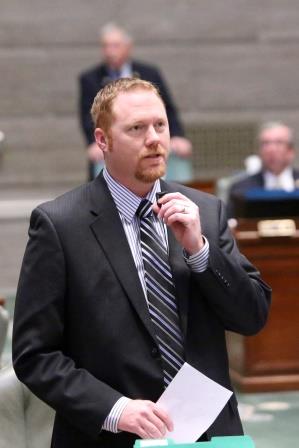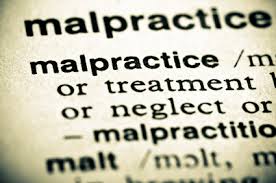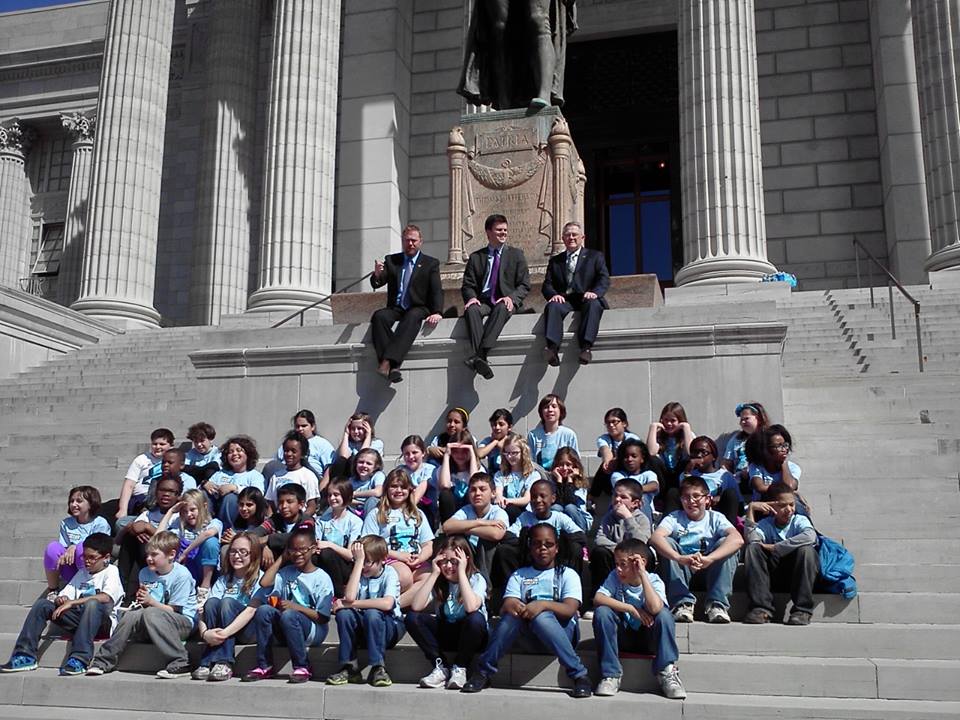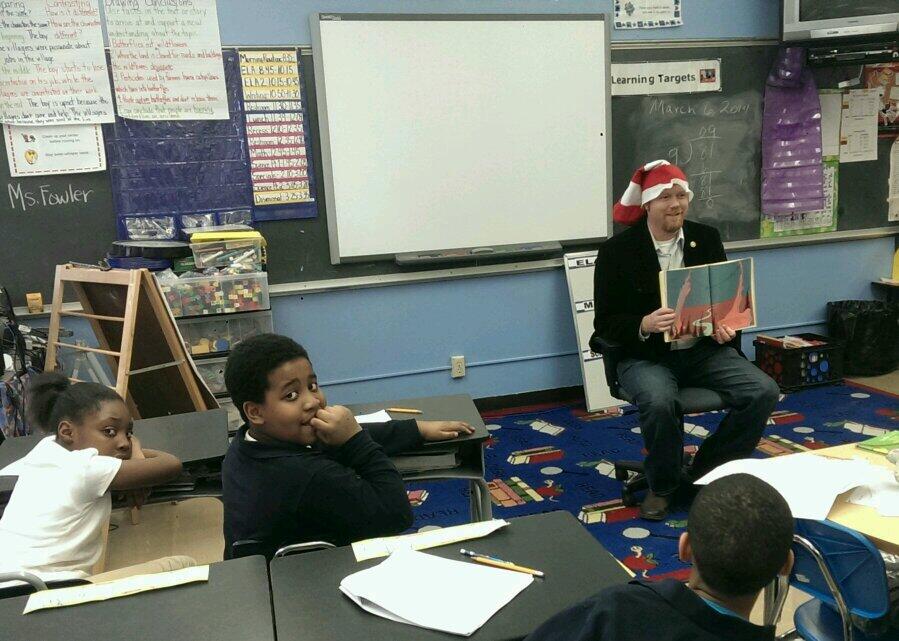|
|||||||||||||||||
| Health Care Transparency Legislation Voted Unanimously Out of Committee | |||||||||||||||||
The committee on Veterans’ Affairs and Health has given a unanimous endorsement to Senate Bill 684, sponsored by Sen. Holsman. The measure SB 684 calls for transparency in the health care market place, by requiring hospitals and ambulatory surgical centers (ASCs) to report the prices of their most commonly performed procedures to the Department of Health and Senior Services (DHSS). If passed, hospitals and ASCs would send DHSS the following information on: – The amount that will be charged to a patient who pays in full without public or private insurance. – The average negotiated settlement on the amount that will be charged to a patient. – The amount of Medicaid reimbursement for each procedure, including claims and pro rated supplemental payments. – The amount of Medicare reimbursement for each procedure. – The average reimbursement from private health insurance companies. This similar legislation was passed last year by the Legislature in North Carolina. Also, similar provisions to SB 684 are outlined by the Affordable Care Act, although not currently being enforced. The Kansas City Star has reported on this issue; find one of their articles here. |
|||||||||||||||||
| Homestead Preservation Tax Credit Bill Receives Hearing | |||||||||||||||||
Senator Holsman presented Senate Bill 870, an act re-authorizing the Homestead Preservation Act tax credit program, to the Committee on Ways and Means. This tax credit program provided a property tax credit for qualified senior citizens and disabled individuals until it expired on Aug. 28, 2010. This measure reauthorizes the program beginning with the 2015 tax year and will sunset on Dec. 31, 2024. The programs previously allowed for an exemption limit, which The income limit for eligible owners is set at $100,000 for 2015, and will indexed to correlate to increases in the general price level. This act is subject to appropriations by the General Assembly. The program has worked in the past with residents applying for the credit, and money is then appropriated by the state and then dispersed as funds are available to cover the expense of the credit. |
|||||||||||||||||
| Education Debate In-Depth | |||||||||||||||||
|
The most vigorous debate so far this session in the Missouri Senate has involved proposed challenges in our state’s elementary and secondary education system. The measures debated have covered a number of concepts, many of which have been brought to light as a result of several court cases involving student transfer issues. The case which is commonly referred to as Turner vs. Clayton, later taking on the name of Breitenfeld vs. Clayton, involved students in the then unaccredited St. Louis Public School District transferring to the nearby Clayton School District under a state law which allows students in unaccredited districts to transfer into accredited school districts with the costs being born by the unaccredited districts. The initial challenge to this law, brought by the Clayton School District, argued that the transfer law violated the Hancock Amendment to the state constitution creating an unfunded mandate to receiving districts. After years of litigation, the Missouri Supreme Courtweighed in on the issue this past June, reversing a lower court ruling and allowing for transfers from unaccredited districts to accredited districts. The school districts feeling the immediate consequences of this decision were Normandy and Riverview Gardens, located outside of St. Louis. In the wake of the court decision, over 2,000 students transferred from the unaccredited districts into surrounding accredited districts. The loss of students, in addition to the obligation that the unaccredited districts pay the transportation and tuition costs for the transfers, has turned the vice once more on the unaccredited districts creating financial solvency issues.
Kansas City School District Specific In the Kansas City Public Schools there are just over 14,000 students. In the case of the Kansas City Public Schools, the district and surrounding districts have applied the state recommended deadline for accepting transfer applications. At the close of the application period, only 12 families, representing 23 students, had applied to transfer out of the district. The Kansas City Missouri School District is also pursuing legal action against the state for failing to grant the district provisional accreditation this past year. Under the results for the 2013 Missouri School Improvement Plan (MSIP), the district earned a 60, which falls in the provisionally accredited range. The State Board of Education has the authority to make the final determinations on a district’s status. The board denied an upgrade to the district’s unaccredited status, citing concerns about needing to see continued growth by the district. To compare and contrast, here are some relevant scores on the 2013 MSIP: Blue Springs School District – MSIP = 97.9, accredited Pending Legislation In late February the Senate passed Senate Bill 493, which addressed a number of issues relating to education. Here is a listing and brief summary of several of the topics in the measure. Accreditation and Transfers
The proposed legislation adopts a system of accrediting individual buildings, as opposed to the current model of classifying a whole school district. The State Board of Education will only be SB 493 prohibits the State Board of Education from classifying a district as unaccredited when there is no member serving on the state board from the congressional district of which that district resides. This provision reflects the fact that the Kansas City Public Schools was classified as unaccredited, while no state board member serving was representing the Kansas City area. When a school district or school building is classified as “unaccredited,” the district must notify parents, guardians and district taxpayers of the status. The school board must also adopt a This measure allows for students living in unaccredited districts to transfer to an accredited Private Schools Among other provisions relating to the transfer law, SB 493 allows for students transferring out of an unaccredited school to enroll in a nonsectarian private school located in the unaccredited district using funds from the district’s operating levy. To be eligible to transfer to a nonsectarian private school, a student must have been unable to transfer to an accredited school within his or her district of residence and provide proof of residence in an unaccredited district or districts that lie within the attendance boundaries of an unaccredited school or schools for a minimum of 12 months. Charter Schools This act clarifies deadlines for the State Board of Education to receive applications to open charter schools, as well as clarifies deadlines for the board to disapprove applications to open charter schools. The legislation states that sponsors of charter schools must adopt a system of classification that accredits charter schools based on the charter school’s compliance with terms of the charter school’s legally binding performance contract, and develop a policy for revoking sponsorship of the charter school. The bill was voted out of the Senate by a vote of 27-5. Sen. Holsman voted “no” on this legislation, both in committee and on the Senate floor. The prevailing concern was the provision relating to the divergence of public dollars following potential transfers from unaccredited districts to private schools. Private schools have admission standards and no public oversight of achievement. This provision represents an obviously slippery slope for all public school districts in the state of Missouri. At a time when the state is under-funding its obligations to school districts by over $600 million each year, this is not the time to put a framework in place to divert more resources away from public schools. Additionally, the legislation fails to address the true underlying causes of school failure such as poverty and nutrition, parental involvement, or expansion of early child education. The bill in question is now in the hands of the Missouri House, where it will have to go through the committee process before consideration by the full body. |
|||||||||||||||||
| Tort Reform – Debate in the Senate | |||||||||||||||||
In the past weeks, one point of discussion in the General Assembly has surrounded tort actions. A tort action in civil law relates to some kind of action by a party which causes harm resulting in legal liability to the acting party. The action in question is referred to as a “tortious act” and perpetrated by an individual known as a “tortfeasor.” Tort actions can encompass incidents such as auto accidents, malpractice, defamation, or environmental pollution. In tort cases, the burden of proof is lower than in criminal actions (preponderance of evidence vs. beyond a reasonable doubt). At question in the current debate is whether or not there should be caps placed on non-economic damages that are claimed in these cases. Under current Missouri law, there are no caps for non-economic damages in these types of cases. Article I, Section 22a, of the Missouri Constitution guarantees the right to trial by jury. The first line of that provision says: “That the right to trial by jury as heretofore enjoyed shall remain inviolate.” In the 2012, case Watts vs. Cox Medical Centers, the Missouri Supreme Court affirmed that line means a right to trial by jury that existed under the English Common Law prior to the adoption of Missouri’s first Constitution in 1820 (“as heretofore enjoyed”) can’t be restricted or taken away by the General Assembly (“shall remain inviolate”). Because juries had the right under the Common Law to determine non-economic damages in medical malpractice cases, the Supreme Court ruled unconstitutional a 2005 state law imposing a $350,000 cap on such damages. Legislation being debated in the House and Senate would attempt to abrogate medical malpractice as a Common Law cause of action and replace it with a statutorily created cause of action. The intent is to get around the Watts ruling since the Supreme Court has upheld caps on non-economic damages in cases involving statutory causes of action that didn’t exist under the Common Law.
Arguments against these attempts to re institute caps on damages follow that they will likely be deemed unconstitutional once again. From a more humane aspect, setting caps on these actions at a particular level, wherever that level is, limits access to the civil court system for an individual who is seeking to be made whole following some act of malpractice. Arguments for the caps focus on increased costs of health care due to rising insurance premiums to practice medicine. Proponents also site the concern of doctor flight to neighboring states with lower caps. Prior to the 2005 law, which set caps for non-economic damages at $350,000, Missouri had an inflation-adjusted cap of $579,000 for non-economic damages in medical malpractice cases. The inflation adjusted caps had been put in place in 1986 and were originally set at $350,000. The 2005 law lowered the inflation adjusted cap to a flat $350,000 and applied the cap to the total amount owed by all defendants rather than against each defendant for each act of negligence as had been permitted under the old law. If the original inflation-adjusted cap from 1986 had been left in place, the cap would be approximately $760,000 in 2014. Click here to find Senate legislation dealing with tort reform. |
|||||||||||||||||
| Massive Labor Rally Takes Over Jefferson City | |||||||||||||||||
This past week, members of the labor community descended on the Capitol to lobby legislators on a host of issues close to the hearts of working families in Missouri. From “right-to-work” and paycheck protection to prevailing wage, workers rights have been under attack in Jefferson City for a number of years. These attacks have been stymied in the past several years in large part by filibustering in the Senate and the veto pen of the governor. Knowing the governor would veto anti-worker measures, supporters of the so called “right-to-work” legislation have indicated they may try to put such proposals to the vote of the people. Speaking at the rally, Gov. Nixon indicated, “This is wrong and |
|||||||||||||||||
| Gov. Nixon Signs Bill to Establish Equal Out-of-Pocket Costs for Intravenous and Oral Chemotherapy Drugs |
|||||||||||||||||
| One of the first pieces of legislation delivered to and signed by Gov. Nixon was Senate Bill 668, which requires health benefit plans to establish equal out-of-pocket costs for covered oral and intravenously administered chemotherapy medications.
Oral anticancer medications provide patients with a simpler, more convenient and less invasive alternative to chemotherapy delivered intravenously because these pills can be taken at home, often with fewer side effects. Currently, most insurance companies cover these drugs as part of a prescription drug benefit, rather than a medical benefit. As a result, cancer patients taking oral chemotherapy pills have faced significantly higher out-of-pocket costs than those who take their drugs intravenously. Senate Bill 668 addresses this disparity by preventing insurance companies from treating out-of-pocket costs for chemotherapy pills differently than intravenous drugs. Health insurance companies can comply with the law by limiting the out-of-pocket costs they charge for anticancer medications taken orally to $75 for a 30-day supply. An actuarial study commissioned by the Legislature estimated that the measure would have a negligible impact on insurance premiums. |
|||||||||||||||||
| Home Energy Audit Tax Deduction Measure Passes out of Senate | |||||||||||||||||
A tax deduction program allowing for home energy audits, originally established in 2008, sunset and expired in 2013. Sen. Holsman sponsored legislation to reauthorize the credit, extending the sunset to 2020. The legislation, Senate Bill 601, passed out of the committee on Commerce, Consumer Protection, Energy and the Environment, and passed out of the Senate by a vote of 32 – 1. The bill will now head to the House where it will first need to be heard in committee before moving forward. The tax deduction includes $1000 for an individual or $2000 for a household. Eligible expenses apply to the cost of a home energy audit and the costs of implementing recommendations of those energy audits. The deduction is only available to homeowners whose utility does not already offer financial incentives for home energy audits. To qualify, energy audits have to be performed by Certified Energy Auditors (certified by DNR). There are presently 124 Certified Energy Auditors across the state. |
|||||||||||||||||
| IRS and the Free File Alliance Offers Free Assistance for Federal Tax Returns | |||||||||||||||||
Every taxpayer with a 2013 Adjusted Gross Income of $58,000 or less may visit this linkto prepare, complete and e-file their federal tax returns at no cost. Free File is made possible through a partnership between the IRS and the Free File Alliance, a coalition of industry-leading tax software companies. Since its inception in 2003, the program has offered 70 percent of taxpayers free access to leading Free File also offers basic federal e-filing services with no income limitations. This basic |
|||||||||||||||||
| Red Bridge Elementary Visits State Capitol | |||||||||||||||||
|
|||||||||||||||||
| Plan on Taking a Trip to Jefferson City? | |||||||||||||||||
If you plan on making a visit to Jefferson City in the coming months, please consider taking a tour of your State Capitol building, the Governor’s Mansion, or the Missouri Supreme Court. Reservations for any of these tours should be made in advance as spots tend to fill up quickly, especially January through May while the Legislature is in session. Missouri State Parks maintains an online platform and excellent resource for Missouri residents and tourists to visit prior to their trip to our state capital. For tours of the Missouri State Capitol, Governor’s Mansion or the Historic Jefferson Landing, please click here. For tours of the Missouri Supreme Court building, reservations are required. Please click here to make arrangements in advance. |
|||||||||||||||||
| Conservation Department Update | |||||||||||||||||
Nature in Your Neighborhood Art Competition Awards Night Location: Anita B. Gorman Conservation Discovery Center Time: 5:30 p.m. to 8 p.m. Stop by the Missouri Department of Conservation’s Burr Oak Nature Center for special Did you know? Last year, over 40,000 Stream Team volunteers provided 210,601 hours of service by conducting stream litter pickups, education programs, water monitoring, and tree planting. Since 1988, over 4,000 Missouri Stream Teams have volunteered more than two million hours of service. Find a Hunter Education Class The department recently revised its hunter education curriculum to enhance student convenience and emphasize mentorship and hands-on training. Did you know? The department conducts more than 200,000 acres of habitat management on conservation areas each year with an emphasis on natural community, waterfowl, dove, and early successional habitat management. |
|||||||||||||||||
| Sen. Holsman Celebrates Read Across America Day at Ingels Elementary | |||||||||||||||||
|
|||||||||||||||||
| Poetry Out Loud Regional Champions Visit Jefferson City | |||||||||||||||||
| Missouri State Regional Poetry Out Loud Champions met in Jefferson City recently for a dinner with supporters and elected officials, and to compete in the Poetry Out Loud Missouri State Competition.
Poetry Out Loud: National Recitation Contest is a national arts education program that encourages the study of great poetry by offering educational materials and a dynamic recitation competition to high schools across the country. The Missouri State Champion will compete at the National Finals in Washington, D.C., April 28 – May 1, 2014. Missouri had over 5,000 students competing at the high school level in 68 high schools throughout the state. The regional champions competed at their high schools before advancing to the regional level in order to compete at the Missouri State Finals. Poetry Out Loud was created in partnership by the National Endowment for the Arts and the Poetry Foundation with the collaboration of State Arts Agencies as a way to foster the next generation of literary readers by building on the resurgence of poetry as an oral art form, as seen in the slam poetry movement and the popularity of rap music. Through Poetry Out Loud, students master public speaking skills, build self-confidence, and learn about their literary heritage. |
|||||||||||||||||
|
Missouri Senate — 2017
Missouri General Assembly
















